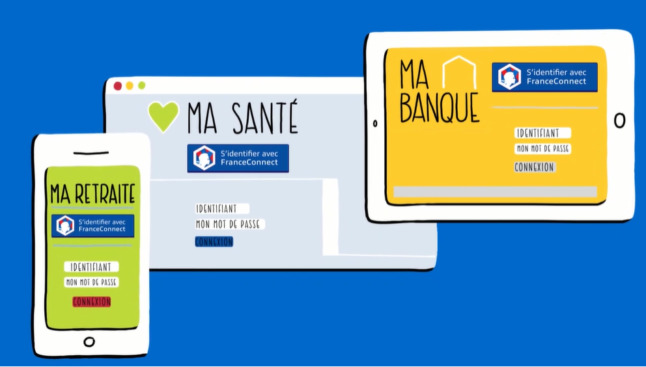More than 25 million people living and working in France can now access 900-plus public and other services online, using a single user ID and passcode combination.

Any website that has the above FranceConnect logo means you can log in using your existing accounts, rather than having to set up a new account with a new ID and password every time you want to use a different online service.
Who can use it?
You need a French social security number, so this isn’t for visitors or second home owners. However if you live here and are working or registered in the French healthcare system you can use it, it is not reserved for French citizens. This needs to be a permanent social security number, not a temporary one.
You will find your social security number on your carte vitale health card or on you payslip.
What you can do
Using FranceConnect, you can access your tax and medical information, open a bank account; renew ID cards, French passports or driving licences; register your new car, or deal with utility bills.
More than 900 services are available to access via the site, including the newly launched section to download a version of your French vaccination certificate that works with the EU vaccine passport.
How it works
To access services via FranceConnect, you need to already have an online account for one of the following online services in France:
- impots.gouv.fr (France’s tax website);
- ameli.fr (the site for Cpam health authorities);
- Mobile Connect et Moi (this is currently just available to Orange mobile customers);
- La Poste’s identité numérique;
- MSA (farmers’ and agricultural workers’ social security);
- alicem (an government mobile identity app).
Once registered with one of these sites, you can login to any website displaying the FranceConnect logo using the same ID and password that you use for that site.
Here’s a video, in French, to explain how it works.
If you moved to France recently and do not yet have an account on the tax website, you can apply for a tax ID number, called a numéro fiscal, before you have made a declaration. To do this, visit your tax office, or fill in the form here
Additional security
Whenever you log in, you will receive an email informing you of a log-in to your account. This is to help stop criminals accessing your account. Even if you do not see the email until later, you can still report any unauthorised log-in.



 Please whitelist us to continue reading.
Please whitelist us to continue reading.
Been using it ever since it kicked off but it helps to use a password manager such as “Roboform” to help remember the login details.